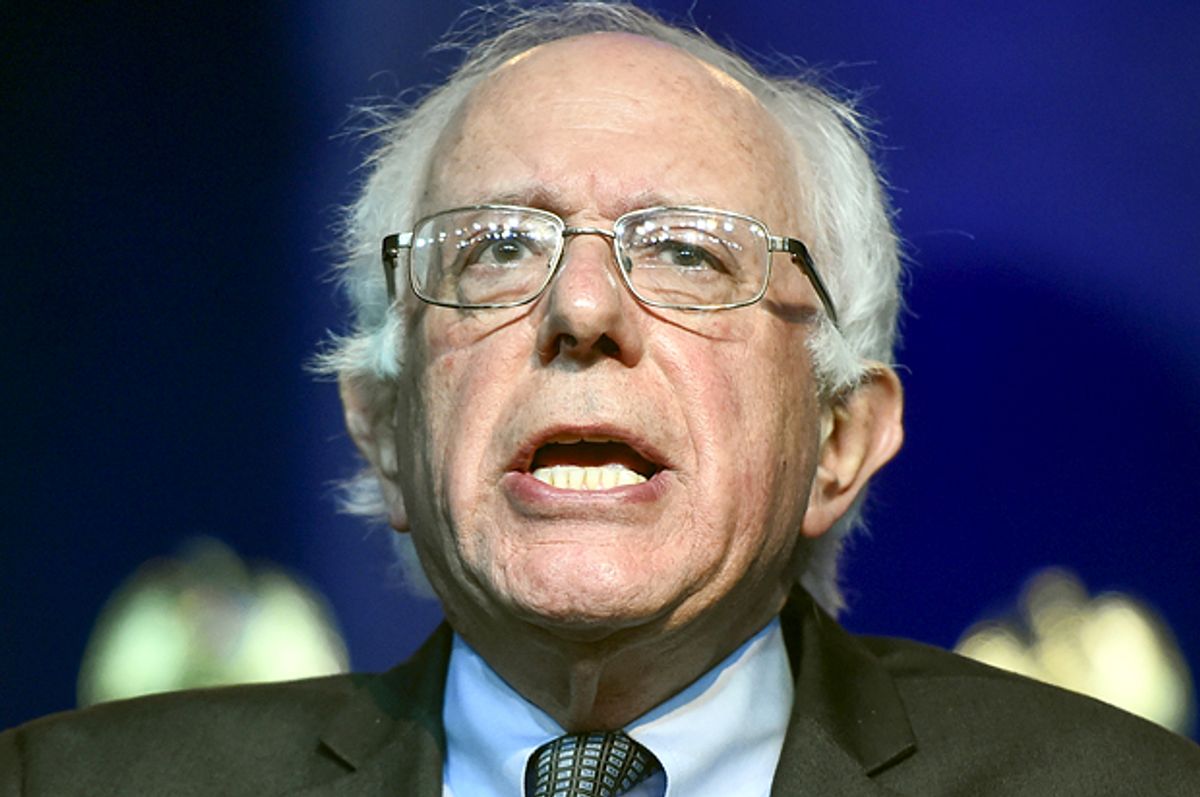Negotiators from 12 countries announced an agreement on the Trans Pacific Partnership (TPP) trade pact on Monday morning. The deal, which is the largest of its kind in a generation, would extend to roughly 40 percent of the world’s economy. If adopted by the governments of participating countries, the TPP would establish a shared global framework and, according to trade ministers from the U.S., Australia, and Japan, “set the rules for the 21st century for trade.”
The trade pact will spur a heated debated in Congress in the coming months, but that debate won’t fall neatly along partisan lines.Republicans, as expected, are largely behind the deal, mostly because it will be a boon for multinational corporations looking to circumnavigate government regulations. Democrats, though, are split on the TPP, with progressives opposing the deal and establishment Democrats in favor of it.
It will be especially interesting to see how the TPP debate impacts the Democratic presidential race. Bernie Sanders has already reacted strongly to the deal. In a letter this morning to supporters, Sanders wrote:
The TPP would expand the same failed ‘free trade’ policies to 12 other nations that have already cost millions of jobs and shuttered tens of thousands of factories across the United States…The TPP follows in the footsteps of other unfettered free trade agreements like NAFTA and CAFTA that have been supported by corporate America and that cost America millions of decent-paying jobs…Virtually every major union and environmental organization in the U.S. is against the deal. Major religious groups are as well because they know what it could mean for some of the poorest people on the planet.
Bernie’s message will resonate with the Democratic base. Tens of thousands of manufacturing plants as well as millions of manufacturing jobs have been outsourced thanks to trade deals like the TPP. So this issue fits perfectly into his broader campaign narrative.
The TPP debate will be harder to manage for Hillary Clinton, however. As Clark Mindock of the International Business Times notes:
Clinton has found herself in a tough place. Democrats have come together in a high-profile rejection of giving U.S. President Barack Obama broad trade negotiation authority on the TPP, and it makes political sense that Clinton has more or less done the same in campaign rallies. The problem, though, is that during her time as secretary of state, she may have expressed support for the deal more than a few times – and at least one Obama administration aide has pointed out her involvement.
To be fair, Clinton was a member of the Obama administration, so it should surprise no one that she supported his trade deal while serving as Secretary of State. But her continued reluctance to take a clear stand on the TPP has opened her up to criticism from the left, as have her various ties to the corporate sector. Indeed, this is one of the few issues on which Sanders has been willing to attack Clinton directly. In June, Sanders appeared on “Charlie Rose” and told Bloomberg’s Al Hunt that “I’ve known Hillary Clinton for 25 years and I have a lot of respect for her. I frankly don’t understand how you could be a major candidate for president of the United States – Hillary Clinton, or anybody else – and not have an opinion on that issue [the TPP].” Sanders went on to call Clinton’s silence on the TPP deal a “cop-out.”
As of now, the TPP debate presents an opportunity for Sanders and a challenge for Clinton. The TPP deal and everything it represents stands in perfect contrast to Sander’s populist economic message. Clinton can still help herself with Democratic voters by taking a strong position on the trade pact, but it remains to be seen how plausible progressives will find her critiques.

Shares